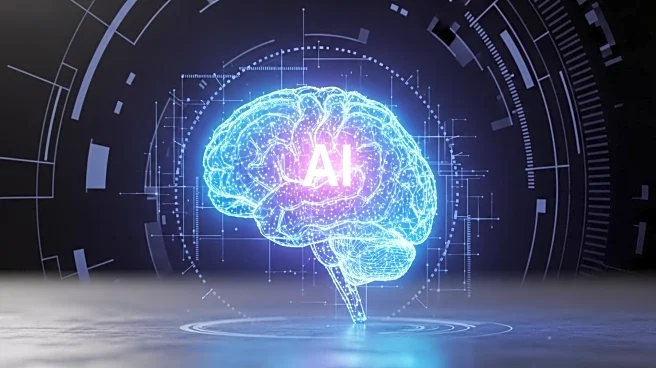What's Happening?
The possibility of artificial intelligence (AI) winning a Nobel Prize is being debated among experts in the field. While some believe that AI could eventually be credited for significant scientific and engineering breakthroughs, others argue that AI lacks the necessary life experiences to pose creative questions and gain insights that lead to true innovation. Subbarao Kampbhampati, a professor at the School of Computing and Augmented Intelligence, emphasizes the importance of human researchers' life experiences in the creative process. He suggests that AI's limitations in real-world experience may hinder its ability to achieve the level of innovation required for a Nobel Prize.
Why It's Important?
The discussion around AI's potential to win a Nobel Prize highlights the growing role of AI in scientific research and technological development. If AI were to achieve such recognition, it could signify a major shift in how scientific contributions are evaluated and credited. This could impact funding, research priorities, and the role of human researchers in the scientific community. The debate also underscores the importance of human creativity and experience in driving innovation, suggesting that while AI can assist in research, it may not yet be capable of independently achieving groundbreaking discoveries.
What's Next?
As AI continues to advance, researchers and institutions may explore ways to integrate AI more deeply into the scientific process. This could involve developing AI systems that better mimic human creativity and experience, or finding new ways to collaborate between AI and human researchers. The ongoing debate may also lead to discussions about the criteria for awarding Nobel Prizes and whether they should evolve to accommodate contributions from AI.
Beyond the Headlines
The ethical implications of AI potentially winning a Nobel Prize are significant. It raises questions about authorship, intellectual property, and the value of human input in scientific research. Additionally, it could influence public perception of AI, either enhancing its reputation as a tool for progress or sparking concerns about its role in replacing human ingenuity.








